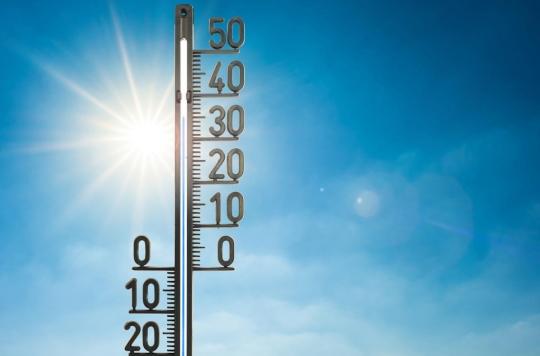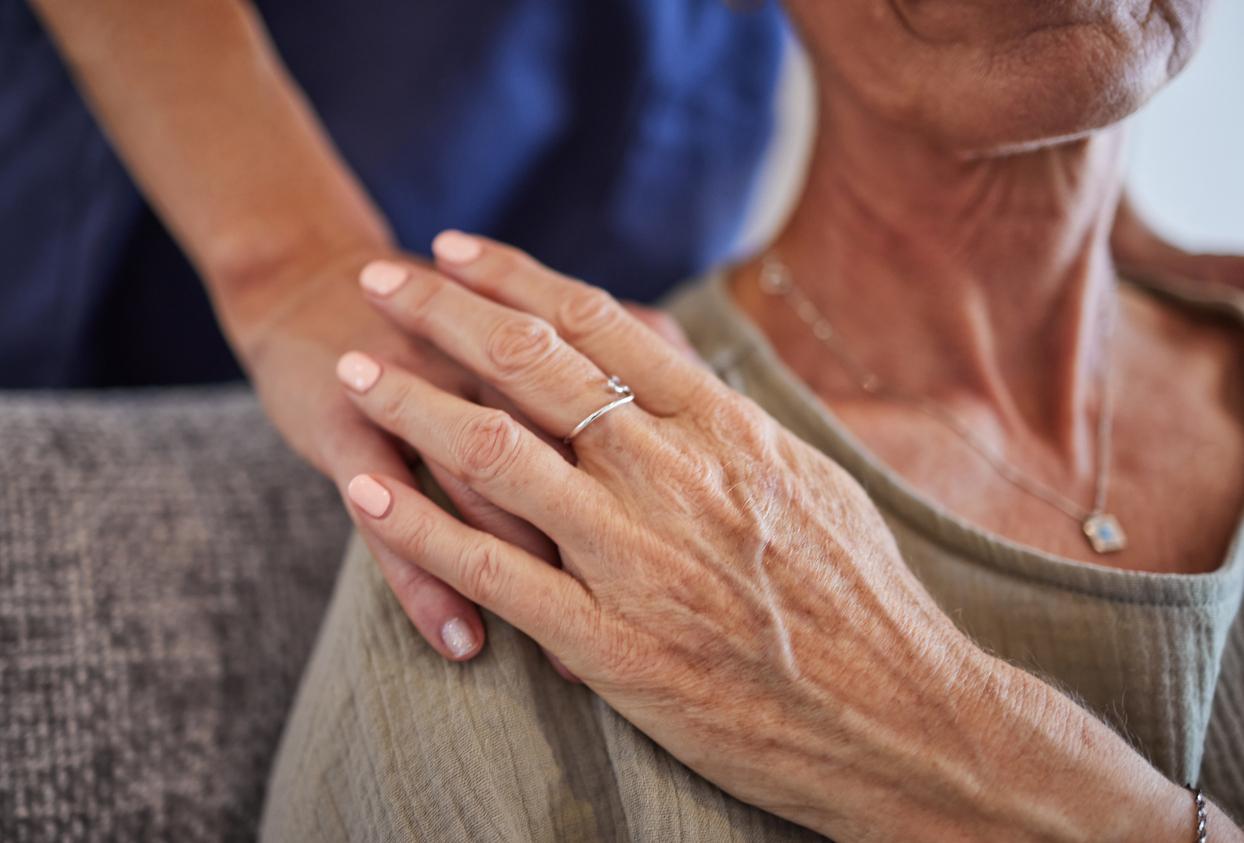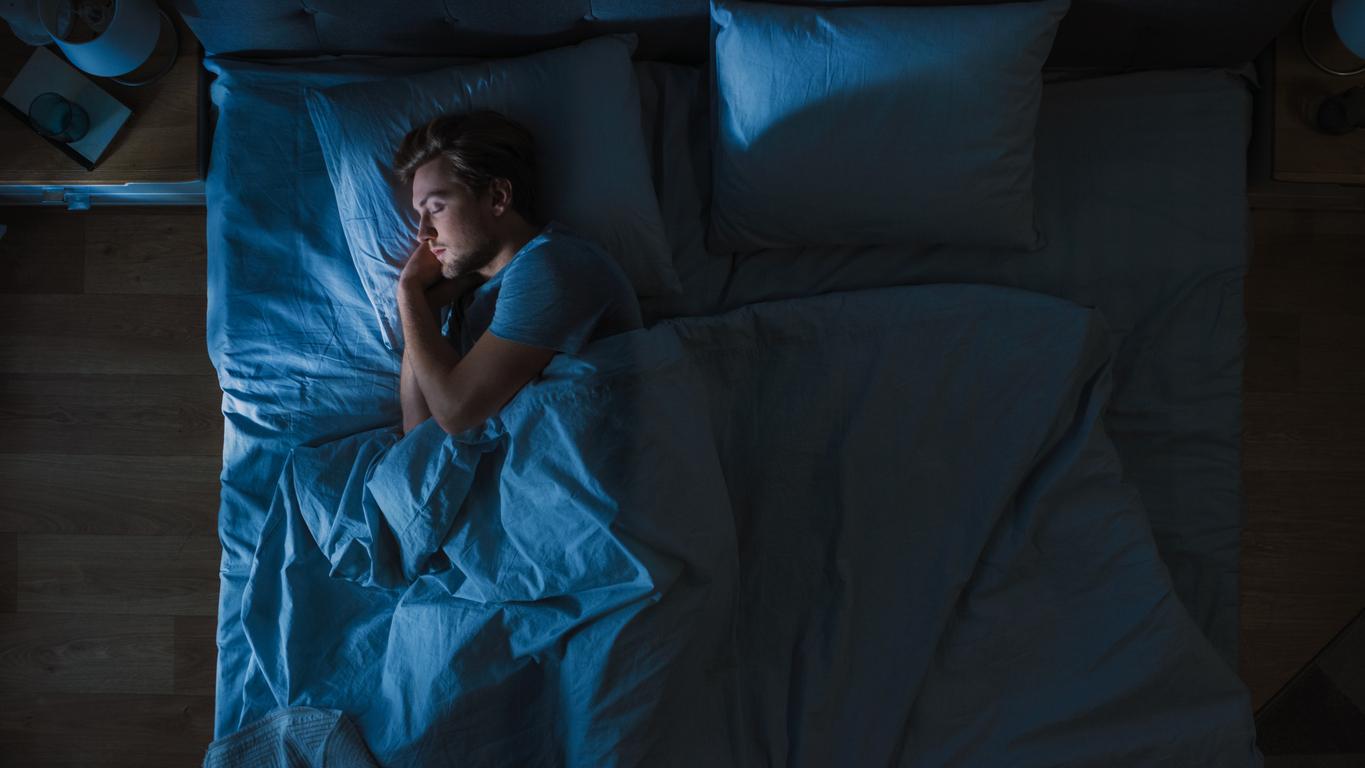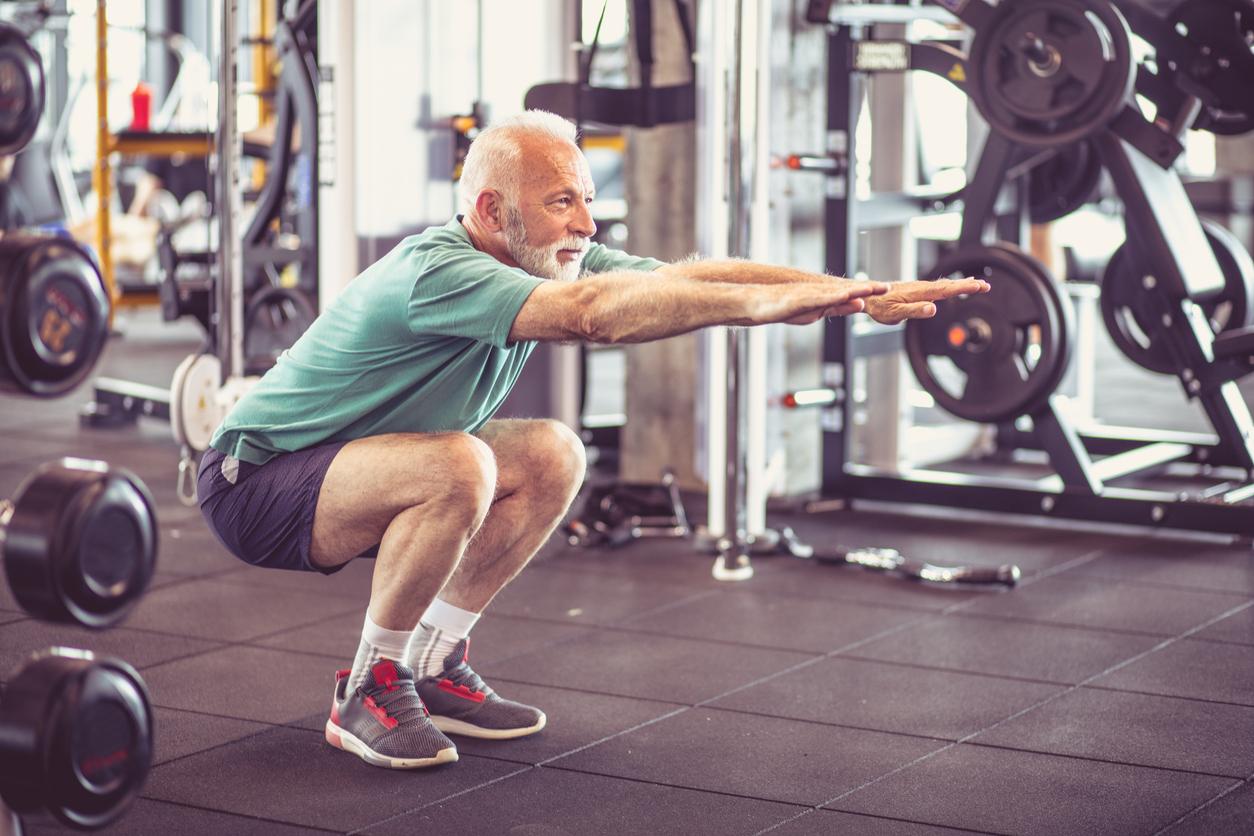Virginie Hilssone, journalist and weather presenter, explains in her book “Living better with time” (ed. Flammarion) the consequences of time on our health and morale. Maintenance.

- Some people are sensitive to changes in the weather which have consequences for their health
- Women are more affected than men
- Seasonal depression is now a recognized disease
Virginie Hilssone, journalist and weather presenter at France Télévisions and BFM and bloggerauthor of the book Live better with time (Flammarion editions) explains how weather variations affect our health.
What is weather-sensitivity?
Weather-sensitivity is the ability of the human body to adapt to weather variations. We are all weather-sensitive, in the sense that we are all part of nature, we are subject to natural light and we breathe 10 to 15,000 liters of air a day. The human body constantly tries to adapt to the climate. We reprogram ourselves with each change in temperature, which influences our moods and our behavior. It is nevertheless estimated that 30 to 50% of people are even more sensitive to weather variations than the others. Their sensitivity is manifested by migraines, severe fatigue during seasonal changes and irritability, all of which can lead to what is called seasonal depression. You should know that women are more weather-sensitive than men insofar as they produce less stress resistance hormone. Teenagers, especially because of the hormonal changes they experience, are also very affected.
We tend to feel motivated and enthusiastic when the sun is shining and conversely depressed when the sky is gray. How and why does the weather influence our morale?
Two phenomena influence morale: sunlight and temperatures. Seasonal depression is now a recognized illness. It’s a fact: we need light to live. Like plants, we couldn’t survive in the dark. The temperatures vary constantly within the same day (morning, afternoon, evening). At home, in a temperate climate, the body must adapt. When the temperatures are in the extremes, as in summer when it is very hot or in winter when it is very cold, this creates discomfort and plays on morale. In winter, it creates isolation, because people prefer to stay at home, warm, which also affects morale.
How does daylight benefit us?
It is vital for Man. It is in particular on the natural light that synchronizes our biological clock, this conductor of our body. It contributes to the production of vitamin D, essential for the bones and the heart. Light also stimulates the production of serotonin, the happiness hormone. It is for this reason that one feels better when there is sun.
How to remedy the decrease in winter light?
There are many alternatives: in winter, we tend to stay at home, while there is always more light outside under a gray sky than at home. So we have to get out. It is also important to adapt your diet, in particular by consuming foods rich in vitamin D. Also a little tip: every winter, I replace my usual bulbs with full-spectrum bulbs, whose light is close to that of the sun. It is similar to light therapy. You can also invest in a light therapy lamp or do visualization exercises to try to transport yourself to a warm place, in a summer setting. The brain does not differentiate between imagined and experienced sensations. It takes practice, but it feels good. This is what some psychiatrists are taught to do to patients who suffer from seasonal depression.
How to choose a light therapy lamp?
It is first necessary to ensure that the product has CE marking. To be effective, it is preferable that the lamp can reach a level of luminosity of at least 10,000 lux. If it is equipped with a dimmer, this helps to accustom fragile eyes. For example, I started at 3,000, then exposed myself to 5,000 lux and now I vary between 8,000 and 10,000 lux. You have to expose yourself for 30 minutes every day at a distance of about 30 cm, ideally in the morning so as not to upset your biological clock. It is said that the effects are felt after 2 weeks, I felt the benefits after 5 days. I no longer had mid-day fatigue and felt more energetic.
Why does a sudden change in temperature tend to tire us?
Basically, the body must constantly regulate itself to maintain a body temperature of 37 degrees. However, spring is a season that requires a lot of effort from the body because of the large thermal amplitudes. This is also why we say that spring and autumn are between seasons and not seasons. The body exerts more effort when it faces large temperature differences. This is all the more true in frail or elderly people, who have slower thermoregulation.
As surprising as it may seem, you talk about the virtues of thunderstorms and rain on the body and morale. Why would they benefit us?
The rain contained in a storm cloud is solicited by luminous flashes. Studies have shown that the water stimulated by these flashes undergoes changes and becomes electrically charged, ie dynamic. It is able to deeply nourish the cells and strengthen the immune system. What I recommend in my book is to collect this water in a container and put it in your bath. Spas also offer energized showers, whose properties are similar to those of storm water.
Everyone hates the rain, it upsets our plans, it’s gray, it restricts mobility… but it’s good for your health. The rain releases negative ions, fine particles also electrically charged which are called “air vitamins”. They are beneficial for the body: we are in a better mood, we sleep better, we feel more dynamic. It’s also very good to walk in a little light rain, the air is generally cooler, the pollen is pressed to the ground and the oxygen enters the lungs better.
We complain about cold and sunless days, but why is weather alternation ultimately a chance?
We love the sun, because we need it yes, but also because we live in a temperate climate and we take full measure of its importance and its benefits for us. If we had it every day, a feeling of weariness would set in. Psychologically, it’s nice to know that there is an alternation of seasons, a different setting that stimulates us and avoids routine. Human beings need changes. The meteorological alternation allows us to live in the present moment. As soon as there is sunshine, you want to take advantage of it right away, to go out, to experience it intensely. Which would not be the case if our climate was always the same.
How can we better support and adapt to seasonal changes?
There are two possibilities: anticipation and adaptation. Winter prepares for summer, because during this sunny season, we tend to relax everything, to expose ourselves to the sun a lot (sometimes without sun protection), to go out a lot, to go to bed late, we do not necessarily eat well and we arrive autonomously, where the days get shorter and the temperatures drop, finally tired. However, if we are tired in autumn, we are exhausted in winter. You have to prepare your body by establishing good habits (diet, well-being, etc.) in the summer. Then you have to adapt to everyday life by adopting habits related to each season.
You also mention indoor weather. What are your tips during lockdown?
The weather influences our well-being at home too. This is why it is important to ventilate your home, because we are forced to spend all our days there and in normal times already, our interior is 5 to 7 times more polluted than outside. Aerate in the morning and in the evening for 10 minutes, there is less pollution and pollen at these times of the day. Limit indoor pollutants (chemical household products, tobacco). Air out after showering and cooking. Above all, capture the light: even without a balcony, stick your head out the window for 10 to 15 minutes a day minimum to secrete serotonin.
Why did you write this book?
I find that we have a vital relationship with the weather and we tend to forget it. We are detached from nature because of our daily comfort (heating, air conditioning…). But it is essential to adapt to it to live better live, we depend on the weather, we are weather-sensitive. I am very sensitive to it, I wanted to better understand what this phenomenon was and to help people like me.
.















